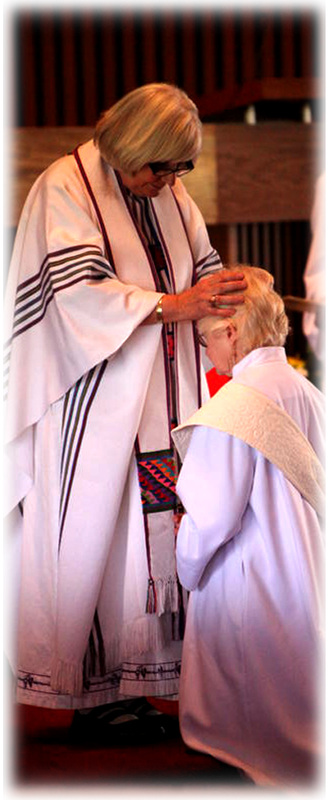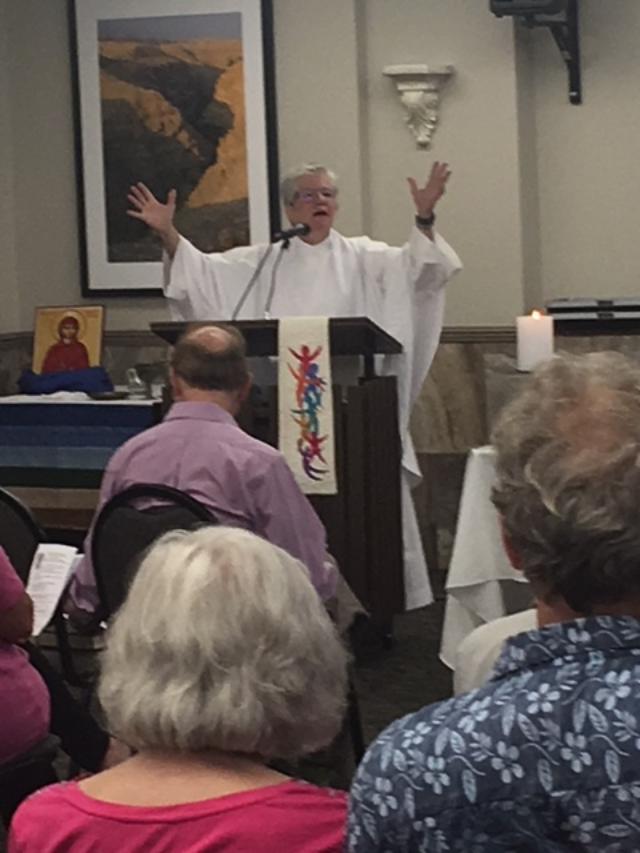June 23, 2024
12th Sunday in Ordinary Time
Helen Weber-McReynolds, RCWP
Job 38: 1-9, 12-18; All Shall Be Well, Joyce Rouse/Julian of Norwich; 2 Cor 5: 13-20; Mark 4: 35-41
Julian of Norwich was a 14th century woman mystic who lived through very turbulent times, including the Black Plague in Europe. She experienced a series of sixteen mystical encounters with Jesus, revealing to her the love of God. In one of these encounters, Jesus told her, “All shall be well, and all shall be well, and all manner of things shall be well.”
Julian perceived this statement not as soothing, but as shocking. How could this possibly be, she thought, given the reality of pain, suffering, and violence in the world? Years later, she wrote how she had come to understand these words of Jesus: “Would you learn to see clearly your Lord’s meaning in this thing? Learn it well: Love was his meaning. Who showed it to you? Love… Why did he show it to you? For love… Thus I was taught that love was our Lord’s meaning.” She went on in her writings to portray God as a loving mother. She spent the rest of her life counseling people to avoid sin and live in love.
Our readings show us other examples of this same age-old human question: How do understand the love of God when tragedy strikes in our lives? In our first reading, Job lost all his property, wealth, and even his children and family, one after another. He struggled to understand God as loving. His friends tried to convince him that God was vengeful. But God then addressed Job face-to-face, reminding him of the power and beauty of her gifts of creation, in the words of a loving mother. “Where were you when I spun the cosmos into being?... Who planted the earth with seeds of life?... Were you there when the seas filled the earth as waters burst forth from the womb?” “I am still present to you,” this mother-God seemed to say. “Joy and sorrow may pass through your life, but my love, like the sea and stars, always remain.”
In our Gospel, the apostles sailed with Jesus across the Sea of Galilee, when a violent storm rose and threatened to drown them all. They were terrified and begged Jesus to protect them. Jesus calmed the seas and waves, and then asked his friends, “Why are you afraid? Have you still no faith?” The Gospel says they were filled awe and asked one another, “Who is this?”
So in these two accounts, Job and the apostles were left, not with understanding, but with awe of God. They were left with ecstatic wonder at God’s enduring presence with them.
Our reading from Paul to the Corinthians is an attempt to approach understanding of God’s love, even when life is sad and confusing. Paul acknowledged that sometimes ecstasy and awe are our only ways of responding to God’s wonders. Yet our human reason demands understanding. He said, “If we seem ecstatic, it is for God. If we appear of rational disposition, it is for you. ….” Paul’s answer to this puzzle was this, “Jesus did die, , so that those who live might also no longer live for themselves, but for the raised and living body of Christ” Paul’s conclusion is the same as Julian’s: Whatever happens, we are called to love. We are called to live for others, to die to our own selfishness, and to live in self-giving love, as Jesus did.
Jesus mentioned faith, asking the apostles in the boat, “Why are you afraid, have you no faith?” As I see it, faith seems to be at the crossing of ecstasy, or awe, and reason. Often, when we are facing tragedy, it is hard to recognize God’s love. We have to hang out in faith for a while. We know through reason that God does not wish for anyone to experience pain or loss. How could God have created this beautiful world and our beautiful relationships if she did not love us without reservation? Yet, because of God’s total love, she created freedom and choice for us. With freedom, comes the possibility of wrong choice, of violence and greed and death. Whatever happens, faith can sometimes tide us over until we are once again ready to recognize that God is love, and that, in the end, all shall be well.
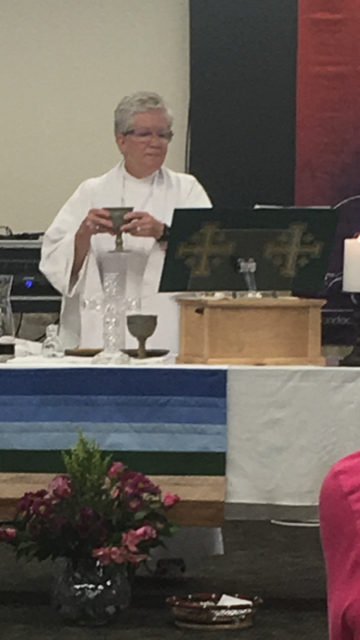
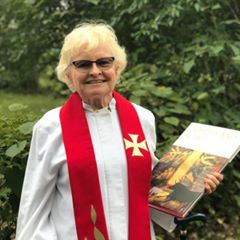
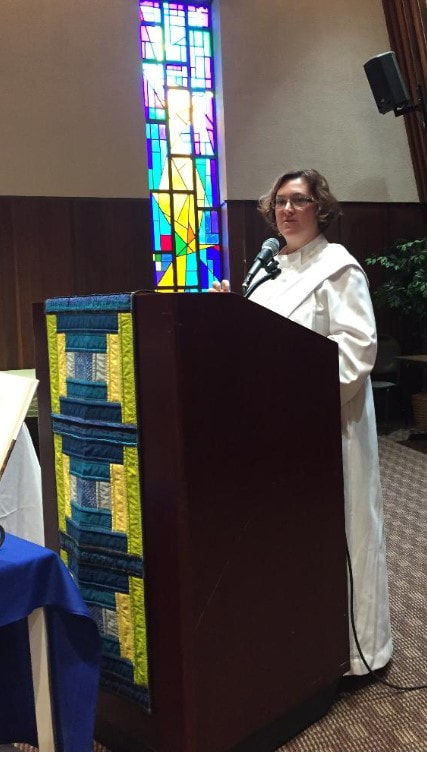
 RSS Feed
RSS Feed
